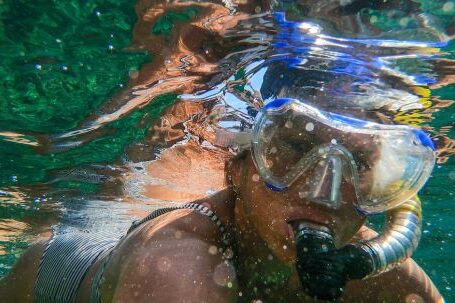Diving in open water can be an exhilarating and rewarding experience. Exploring the depths of the ocean and discovering the wonders that lie beneath the surface can be truly mesmerizing. However, it is important to remember that diving in open water also comes with its own set of risks and dangers. To ensure a safe and enjoyable diving experience, it is crucial to take certain safety precautions. In this article, we will explore some of the key safety measures that every diver should follow.
1. Get Proper Training and Certification
Before venturing into open water, it is essential to receive proper training and certification from a reputable diving agency. These courses will provide you with the necessary knowledge and skills to dive safely. Training will cover topics such as equipment usage, underwater navigation, emergency procedures, and dive planning. By obtaining a diving certification, you will not only enhance your safety but also gain the confidence to handle potential risks while diving.
2. Check and Maintain Equipment Regularly
Your diving equipment is your lifeline underwater, so it is crucial to ensure that it is in good working condition before every dive. Regularly inspect your gear for any signs of damage or wear. Pay close attention to your regulator, buoyancy control device (BCD), and dive computer. If you notice any issues, have them repaired or replaced immediately. Additionally, always rinse your equipment with fresh water after diving to remove any salt or sand that could cause damage.
3. Plan Your Dive and Dive Your Plan
Proper dive planning is essential for a safe and enjoyable dive. Before entering the water, carefully plan your dive, taking into consideration factors such as depth, duration, and underwater conditions. Create a dive plan that includes your planned route, maximum depth, and estimated bottom time. Stick to your plan and communicate it with your dive buddy or group. By following your plan, you will minimize the risk of getting lost or running out of air.
4. Dive with a Buddy
Diving with a buddy is not only more enjoyable but also significantly safer. A dive buddy can provide assistance in case of an emergency, and you can rely on each other for support and communication underwater. Before diving, discuss your dive plan with your buddy and establish hand signals for communication. Always keep an eye on each other, and if one of you needs to ascend or encounter any issues, both should end the dive.
5. Monitor Your Air Supply and Dive Time
Keeping track of your air supply and dive time is crucial for a safe dive. Regularly check your pressure gauge and ensure you have enough air to safely ascend to the surface. Never push your limits or exceed your dive time. Ascend with a reserve of air in case of unexpected circumstances. Monitoring your air supply and dive time will help you avoid running out of air or experiencing decompression sickness.
6. Be Aware of Your Surroundings
Maintaining situational awareness is vital while diving in open water. Always keep an eye on your surroundings and be aware of potential hazards such as strong currents, marine life, and other divers. Avoid touching or disturbing marine life, as it can be dangerous for both you and the environment. By staying vigilant, you can anticipate and react to any potential risks or dangers that may arise.
Remember, safety should always be your top priority when diving in open water. By following these safety precautions and practicing responsible diving, you can ensure a memorable and safe diving experience. So, get trained, check your equipment, plan your dives, dive with a buddy, monitor your air supply and dive time, and stay aware of your surroundings. Happy diving!





